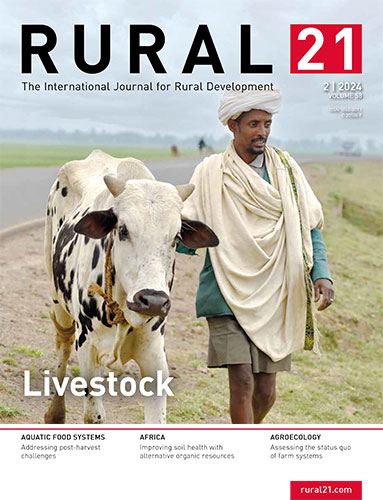- Share this article
- Subscribe to our newsletter
European e-waste poisons Africa‘s food chain
New research reveals dire human exposures and food chain contamination from highly toxic plastics in waste in Ghana that includes toxic e-waste shipped from Europe, IPEN and Basel Action Network (BAN) reported in April 2019.
Researchers analysed the eggs of free-range chickens that forage in the Agbogbloshie slum in Ghana, home to an estimated 80,000 people who subsist primarily by retrieving and selling copper cable and other metals from e-waste. Their findings were published in the report Weak Controls: European E-waste Poisons Africa’s Food Chain.
The process of smashing and burning the plastic casing and cables to extract the metals releases dangerous chemicals found within the plastics, such as brominated flame retardants, and creates highly toxic by-product chemicals like brominated and chlorinated dioxins and furans. The sampling of eggs revealed alarmingly high levels of some of the most hazardous and banned chemicals in the world, including dioxins, brominated dioxins, PCBs (chlorinated diphenyls), PBDE (Polybromierte Diphenylether) and SCCPs (short-chain chlorinated paraffins). PCBs in these eggs were four-fold higher than the EU standard and 171-fold more elevated than the standard for dioxins and dioxin-like PCBs.
An adult eating just one egg from a free-range chicken foraging in the Agbogbloshie scrap yard and slum would exceed the European Food Safety Authority (EFSA) tolerable daily intake (TDI) for chlorinated dioxins by 220-fold. The typical daily egg consumption per person in Ghana is less than one egg a day, but even eating 2.5 grams of an egg per day would exceed the EFSA TDI by more than 15-times.
Weak controls allow the dangerous export of e-waste
Researchers from BAN have tracked shipments of used electronic devices from Europe to Ghana. The 2018 BAN report Holes in the Circular Economy: WEEE leakage from Europe revealed how e-waste from homes and businesses in Europe were fitted with electronic trackers and traced to developing countries. In Africa, the European e-waste was illegally dumped in Ghana along with locations in Nigeria and Tanzania.
Weak controls in international treaties allow developed countries to export e-waste to developing countries, leading to dangerous food chain contamination. The grim evidence, say researchers, calls for immediate action to strengthen international laws restricting hazardous chemicals in waste and to list brominated dioxins in the Stockholm and Basel Conventions.
The export of e-waste and the toxic chemicals they contain could be prevented by agreement on tougher hazardous waste limits in the Stockholm Convention, known as Low POPs Content Levels (LPCL). POPs (persistent organic pollutants) waste, as defined by the LPCL, cannot be exported to countries that do not have the advanced infrastructure to destroy it.
(IPEN/ile)
More information:
Weak Controls: European E-waste Poisons Africa’s Food Chain:
ipen.org/documents/weak-controls
Holes in the Circular Economy: WEEE leakage from Europe:
http://wiki.ban.org/File:Holes_in_the_Circular_Economy-_WEEE_Leakage_from_Europe.pdf





Add a comment
Be the First to Comment